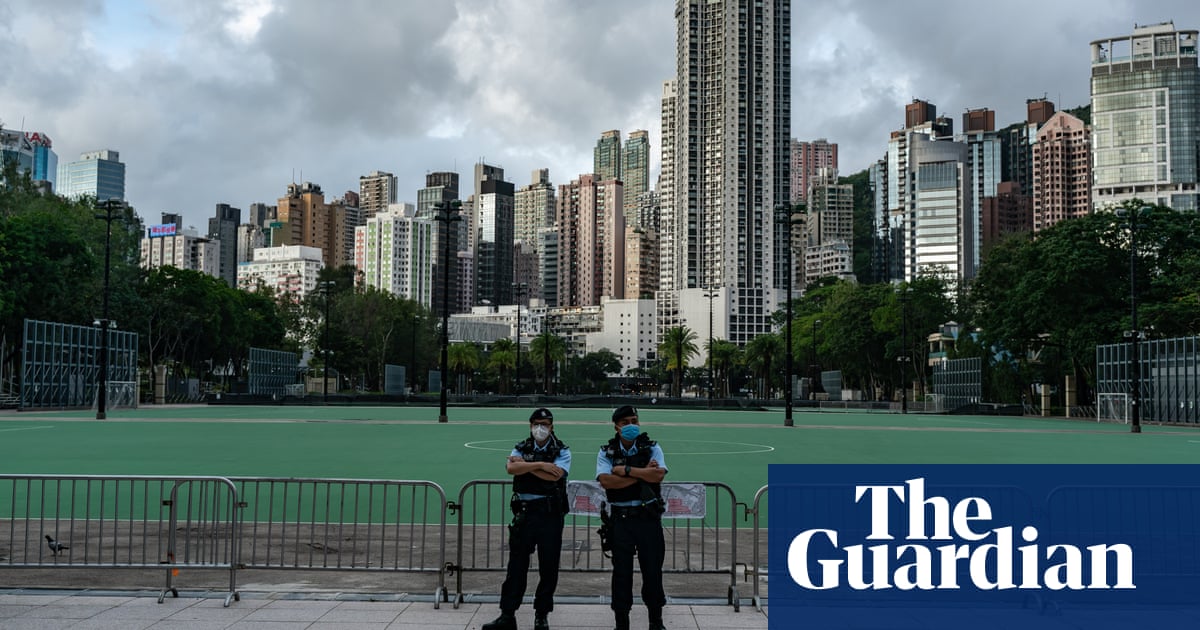Hong Kong plunges lower in global human rights index
Hong Kong has plunged further in a human rights ranking report, bringing it on a par with Saudi Arabia in some indicators, and closer to converging with China as the Communist party government deepens its control on the region.
The rankings report by the Human Rights Measurement Initiative (HRMI) also highlighted a deepening divide in China between high scores in quality of life indicators and some of the world’s lowest for civil and political rights. But the organisation found rights to basic essentials were often stripped from people for political reasons.
Now in its fifth year, the HRMI conducts national surveys to assess a country’s quality of life, safety from the state and empowerment, against what that government can afford to offer. It also provides a ranking against other countries.
Hong Kong’s political rights dropped dramatically after a crackdown on the 2019 pro-democracy protests and the introduction of the national security law in 2020. In 2021 it plunged even further, dropping to second-last place in empowerment rights, falling below Vietnam and bringing it on par with Saudi Arabia’s margin of error.
“What we see here is Hong Kong’s scores are converging downwards towards [last placed] China’s score,” said Thalia Kehoe Rowden, a spokesperson for the HRMI.
Indicators for the right to freedom of assembly and association, opinion and expression, and participation in government were also all “very bad”, with average scores of 2.5. The scores were 4 or above in 2019.
The survey found the right to freedom from arbitrary arrest in Hong Kong was in the lowest “very bad” range, with a score of 3.5 out of 10. The risk of torture and ill treatment was also considered high, falling in the “bad” range at 5.5.
The human rights experts surveyed said those most at risk were protesters, political activists, people with “particular political affiliations or beliefs” and human rights advocates. However, the fifth most cited group was “all people”, with respondents making specific mention of the 60 or so civil society and labour organisations and media outlets that had been shut down.
China’s control over Hong Kong has continued despite opposition from democracy advocates and other world governments. The crackdown has resulted in thousands of mostly young people being arrested with many jailed. Hundreds of thousands of residents have left. A survey this week found young people in particular were resistant with the move to have the once semi-autonomous region subsumed into greater China, with just 2% identifying as “Chinese”, a drop from 5.4% just six months ago. More than three-quarters of the 18-29 age group identified as “Hong Kongers”.
In China, a record number of people responded to HRMI’s clandestine survey. The results showed a divided country, where quality of life indicators were high but political rights extraordinarily low. All its quality of life indicators, for the right to housing, health, water, education and work, were in the “fair” or “good” range, with China’s protection of the right to health the second highest in the world.
Its housing indicator received its lowest score of 87.2%, an assessment brought down by a score of 83.9% for basic sanitation, below more than 100 other countries. This translated to 129 million people without access to basic sanitation and 106 million without water on their premises, all of which the HRMI’s assessed China had the financial ability to provide, highlighting a widening gap between rich and poor.
However, its civil and political rights practices were “among the worst in our data set, and likely among the worst in the world”, said Dr K Chad Clay, the HRMI methodology research and design lead.
Respondents most frequently said that “everyone” was at risk of abuse of empowerment rights, said Matt Rains, the civil and political rights lead at HRMI. “Protest or even criticism at any level leaves you at risk, as even online spaces are closely monitored by state agents … The message from our respondents is clear – nobody in China enjoys political rights, outside of a select few members of the political elite.”
HRMI researchers noted the polar divide between social and economic rights on one end the spectrum and civil and political rights on the other could converge when the withdrawal of the former was used as a threat or punishment against dissidents.
“Expression of opinions not approved by the Communist party can lead to denial of healthcare, refusal of housing, and loss of employment – not just for dissidents themselves, but for their families,” said Rains. “Lives can be – and are – ruined in China for daring to speak out.”













